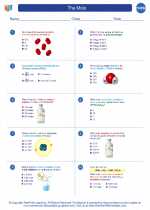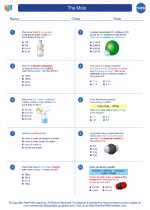Cellular Function
Cellular function refers to the processes and activities that occur within a cell, enabling it to carry out its essential functions and maintain homeostasis. These functions are crucial for the survival and proper functioning of an organism. Cellular function encompasses a wide range of activities, including metabolism, cell growth and division, communication, and response to environmental stimuli.
Key Concepts
- Metabolism: This involves the chemical reactions that occur within a cell to obtain and utilize energy from nutrients, as well as the synthesis and breakdown of molecules.
- Cell Growth and Division: Cells undergo processes such as DNA replication, mitosis, and cytokinesis to grow and divide, ensuring the proper development and maintenance of tissues and organs.
- Cellular Communication: Cells communicate with each other through chemical signals, allowing them to coordinate their activities and respond to changes in the environment.
- Response to Environmental Stimuli: Cells can detect and respond to various external stimuli, such as changes in temperature, pH, and the presence of pathogens, to maintain internal stability.
Study Guide
Here are some key topics to focus on when studying cellular function:
- Understanding the role of enzymes in cellular metabolism and the regulation of metabolic pathways.
- Exploring the stages of the cell cycle and the molecular mechanisms that control cell growth and division.
- Examining cell signaling pathways and the significance of receptor-ligand interactions in cellular communication.
- Investigating how cells sense and respond to changes in their environment, including the role of cell membrane receptors and intracellular signaling molecules.
- Considering the implications of disruptions in cellular function, such as in the context of diseases and disorders related to cellular dysfunction.
Additionally, it's important to familiarize yourself with the latest research and advancements in the field of cellular function, as our understanding of these processes continues to evolve.
Remember to regularly review and reinforce your understanding of these concepts through practice questions, diagrams, and real-life examples to solidify your knowledge of cellular function.
.


